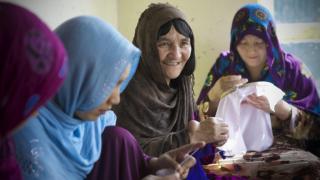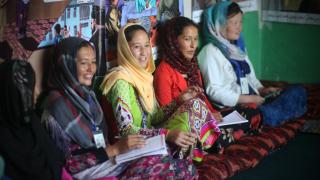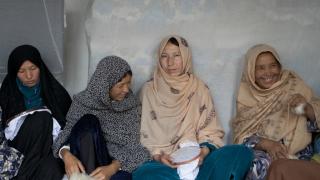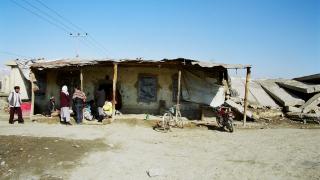Supporting Women to Deliver the Changes They Want
For the first time, Women for Women International has begun to provide graduates with advanced training in advocacy and leadership skills through a dedicated, three-month programme
In Afghanistan, more than a third (36%) of women report not being allowed to participate in any household decisions. For the Afghan women we work with, only 27% of women report being able to influence household financial decision-making when they enrolled in our core programme - this increases significantly to 96% at graduation only twelve months later (data is from women who graduated our core programme in 2015). Findings from a recent study we conducted showed that Afghan women graduates report having more informal influence with neighbours and extended families. However, they face many challenges in being heard in community decision-making mechanisms.
At the community level, I am active, especially in some cases related to women. I advise women, and people in the community are happy about my activities.

Supporting women to be Change Agents in their communities
Being able to influence decisions that affect your life is a fundamental human right
Supporting women to have influence in their communities is important to building their status, providing role models for other women and girls and, in the long term, challenge the attitudes and behaviours that discriminate against women.
This new Afghan advocacy programme is part of a much bigger picture as, by the end of this year, Women for Women International will also be training other groups of women graduates in advocacy and leadership skills in the Democratic Republic of Congo and Nigeria thanks to the important support of the Ministry of Foreign Affairs of the Netherlands. With the generous support of the Millby Foundation, we will also partner with other organisations to support similar training in Kosovo and Northern Iraq this year, and next year, Rwanda.
In short, we want to support women in all countries where we work to become Change Agents in their communities.
For more than a year now, we have been preparing for this moment: we have looked at how such training can build on what women gained from the core programme and we have looked at grassroots women’s advocacy training by other organisations to see what works. As a global organisation, we made the decision that each country would develop its own curriculum, but that each would have common components on aspects that we believe are fundamental to building women’s leadership and advocacy.

Our commitment
building women graduate’s knowledge and skills
We know that every one of the women who graduate from our core programme is unique. This training, therefore, focuses on supporting women graduates to identify the changes they want to see and advocate for them. We are not interested in telling women what their problems are or how things work in their communities as we want Change Agents to choose how to organise and advocate.The training therefore focuses on building women’s knowledge and skills in advocacy, leadership and key thematic issues like violence against women.
Change Agents will receive ongoing support from our staff or partners on the ground and, in Afghanistan, DRC and Nigeria, they will also be directly connected to local NGOs to ensure that their priorities are amplified locally and nationally as well as providing opportunities for further development and influence.
If you have questions about this work, please write to us at policyuk@womenforwomen.org and we will try to address it.
CONTINUE READING
When it comes to protecting women’s rights in conflict-affected countries, it’s time to turn resolutions into reality. The UK’s new Plan is a step in the right direction.
Engaging Men to Make a Difference
subtitle:
Special insight from Ghulam Rabi, a men's engagement programme graduate from Afghanistan.
Secretary Hillary Rodham Clinton sat down with CNN’s Chief International Correspondent Christiane Amanpour at our annual Luncheon to discuss the importance of women's involvement in peace and security around the world.



